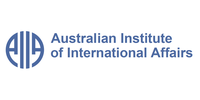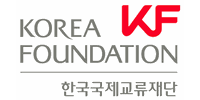Australia's Role in Korea's Indo-Pacific Strategy Policy Forum
Apr 15, 2024
2024
Registration for this event is now closed.
1713103201Join us for an insightful exploration of South Korea's Indo-Pacific Strategy and its implications for Australia at AIIA's annual Korea Forum.
In 2022, President Yoon Suk-yul introduced South Korea's first Indo-Pacific Strategy, emphasizing principles such as commitment to the international rules-based order, democracy, and human rights. Unlike other regional powers, South Korea's strategy avoids direct confrontation with Chinese aggression while addressing issues such as North Korea's nuclear confrontation.
A significant summit in August 2023 brought together Korea, Japan, and the United States to reaffirm their commitment to a free and peaceful Indo-Pacific. Although Australia wasn't a direct participant, it closely monitored the proceedings.
This forum aims to analyze Australia's potential role in Korea's Indo-Pacific Strategy and assess Korea's alignment with existing regional structures such as the Quad, the Australia-Japan-US trilateral arrangement, and AUKUS. By engaging with experts from South Korea, Australia, and other Indo-Pacific states, we seek to provide insights for participants interested in understanding South Korea's foreign policy objectives, particularly within the Indo-Pacific context.
Register now to join us for an academic dialogue that delves into the complexities of regional dynamics and foreign policy strategies.
Please note, this event is in-person only, and does not have a virtual component. Registration is limited due to venue capacity.
Agenda
09
30
-
09
45
Opening remarks
Dr Bryce Wakefield09
45
-
11
00
Panel 1: Promoting a free and peaceful Indo-Pacific
Dr Adam Bartley•Dr Duyeon Kim•Dr Troy Lee-Brown•Allan BehmExperts will discuss South Korea's efforts to foster a free and peaceful Indo-Pacific. Topics include Korea's diplomatic engagements, participation in multilateral forums, and contributions to peacekeeping efforts. The panel will explore challenges and opportunities in Korea's Indo-Pacific strategy, considering regional power dynamics and maritime security concerns.
11
00
-
11
20
11
20
-
12
35
Panel 2: Trade and regional frameworks
Dr Bryce Wakefield•Dr Gibum Kim•Louise McGrath•Liz Griffin GAICDThis panel will analyze South Korea's role in regional trade dynamics and frameworks. Topics include Korea's trade policies, participation in FTAs, and involvement in initiatives like RCEP and CPTPP. Panelists will assess the impact on regional economic integration, supply chain resilience, and Korea's challenges in navigating trade tensions.
12
35
-
13
35
13
35
-
14
50
Panel 3: International law and the rules-based order
Professor Suh Yong CHUNG•Dr Hyein Ellen Cho•Dr Lauren Richardson•Emily MosleyExperts will examine South Korea's adherence to international law and the rules-based order in the Indo-Pacific. Topics include Korea's engagement with legal frameworks, participation in regional institutions, and implications for regional stability and dispute resolution mechanisms.
14
50
-
15
15
15
15
-
15
45
Seminar: How to write an op-ed
Dr Adam BartleyParticipate in our Op-Ed workshop, an integral component of our event, where we'll delve into the nuanced process of crafting compelling opinion pieces. This workshop offers an academic exploration of the structural intricacies and persuasive techniques inherent in Op-Ed writing. Additionally, attendees will gain insights into avenues for publication through Australian Outlook, our esteemed platform. Editorial guidelines and strategies for navigating the submission process will be discussed, providing participants with valuable tools for contributing to informed discourse on South Korea's Indo-Pacific Strategy and its implications for Australia.
We invite engagement from attendees to utilize the knowledge gleaned from forum discussions to draft insightful Op-Eds, thereby enriching the intellectual dialogue surrounding key regional dynamics.
15
45
-
16
00
Closing remarks
Richard Broinowski AOOpening remarks
Speakers
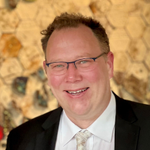
Dr Bryce Wakefield
Chief Executive Officer at AIIADr Bryce Wakefield is the National Executive Director of the Australian Institute of International Affairs and a visiting fellow at the Australian National University. He has lived, worked and researched in the United States, Japan, Europe and New Zealand. He trained as a political scientist with particular expertise in International Relations and the international affairs of East Asia.
From 2008 to 2012 Bryce was the associate responsible for Northeast Asian programs at the Woodrow Wilson International Center for Scholars in Washington, DC. In this role, he was responsible for conceiving, designing and organising around 60 events in Washington, including policy briefings in the U.S. Congress, on political issues in Australia, Taiwan, North and South Korea and Japan. He co-organised, with the Wilson Center’s partners, three major annual policy conferences in Tokyo. He has also given talks in Japanese, including for parliamentarians at the National Diet.
He was also a university lecturer with tenure in area studies and international relations at Leiden University in the Netherlands. While at Leiden from 2012-2018 he taught numerous classes on the foreign policy and domestic politics of Japan, the politics of East Asia, comparative politics, and the relationship between politics and culture. He designed and implemented a successful specialization on culture and politics for Leiden’s graduate program in International Relations. During his time as a university academic he also delivered training, induction and briefing sessions for Dutch and international diplomats in the Hague and in Japan.
Bryce is regularly quoted in the media. His work and views on political issues in Asia and Australasia have appeared in such outlets as the Australian Financial Review, BusinessWeek, Der Spiegel, Financial Times, SCMP, the Telegraph, de Volkskrant and the Washington Times, as well as on the ABC, ACN, SBS, BBC News, CNBC, CSPAN, 7News Australia, and Sky News Australia and in such Japanese outlets as the Daily Yomiuri, NHK and the Sankei Shimbun. In February 2015, the Tokyo bureau chief of the New York Times named him as one of 10 “influential and reliable intellectuals” outside Washington who could help policymakers better know Japan.
Bryce’s academic publications to date focus on constitutional issues and defence policy, political marketing and national identity in Japan. While at the Wilson Center, he also edited and contributed to several of the centre’s multi-author publications on East Asian politics and foreign policy. He has also written on New Zealand’s foreign policy and has been called to the Australian Senate Foreign Affairs and Defence References Select Committee to give expert testimony.
Bryce lived in Japan from 1998 to 2004 and earned his master’s degree from Osaka University’s School of International Public Policy. He earned his PhD in political studies from the University of Auckland.
Panel 1: Promoting a free and peaceful Indo-Pacific
Experts will discuss South Korea's efforts to foster a free and peaceful Indo-Pacific. Topics include Korea's diplomatic engagements, participation in multilateral forums, and contributions to peacekeeping efforts. The panel will explore challenges and opportunities in Korea's Indo-Pacific strategy, considering regional power dynamics and maritime security concerns.
Speakers

Dr Adam Bartley
Managing Editor of Australian Outlook at Australian Institute of International AffairsDr Adam Bartley is the managing editor for AIIA’s Australian Outlook and weekly columnist for The Week in Australian Foreign Affairs. In addition to this, he is a former Fulbright Scholar, resident fellow at the Elliot School for International Affairs, the George Washington University, and former Vassey non-resident Fellow with the Pacific Forum. Adam also has positions as post-doctoral fellow at the Centre for Cyber Security Research and Innovation RMIT University and as program manager of the AI Trilateral Experts Group.
.
Dr Bartley's research interests sit at the intersection of great power competition, emerging technology, and artificial intelligence. His current research on middle power responses to grey zone activities and Artificial Intelligence in the Indo-Pacific forms the enquiry for his Fulbright and Residency research roles. In this capacity, his forthcoming manuscript with Lynne Rienner will be published in 2024.
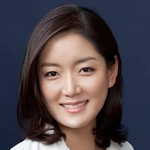
Dr Duyeon Kim
Adjunct Senior Fellow at Center for a New American SecurityDuyeon Kim, PhD, is an adjunct senior fellow with the Indo-Pacific Security Program at
CNAS based in Seoul. Her expertise includes the two Koreas, nuclear
nonproliferation, arms control, East Asian relations and geopolitics, U.S.
nuclear policy, and security. She is a columnist for the Bulletin of the Atomic
Scientists and a Visiting Professor at the Yonsei University Graduate School of
International Studies teaching Regional Security Regimes in Europe and Asia as
well as Deterrence and Negotiations with North Korea: Theory and Practice.
Dr. Kim’s writings have appeared in leading publications, including Foreign
Affairs and Foreign Policy. She is a frequent media commentator appearing on
major networks including CNN, BBC, CBS, and NBC, and she is widely quoted in
leading print media including The Washington Post, The New York Times, The
Guardian, The Associated Press, Bloomberg, Donga Ilbo, Yonhap News, and The
Japan Times. Dr. Kim serves on the board of directors of the bilateral
Korea-America Association and is a member of the Council for Security
Cooperation in the Asia Pacific U.S. Committee, the International Nuclear
Security Forum, the U.S. National Committee on North Korea, and the Korean
Peninsula Future Forum in Seoul. Dr. Kim holds a Ph.D. in international
relations from Korea University; an MS in foreign service from the Georgetown
University School of Foreign Service; and a BA in English/literature from
Syracuse University. She has native proficiency in Korean and English.
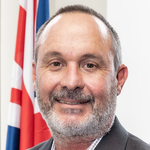
Dr Troy Lee-Brown
Research Fellow at UWA Defence and Security InstituteTroy Lee-Brown is a researcher in regional security, maritime security and international relations with a focus on defence and security issues in the Indian Ocean Region and broader Indo-Pacific. He is currently a Research Fellow at the Defence and Security Institute at the University of Western Australia. Troy is the Editor of the DSI Black Swan Strategy Paper and also the Project Manager for the Blue Security Program a DFAT funded project which focuses on issues of maritime security in the Indo-Pacific. His research interests include the Indian Ocean, Indo-Pacific, maritime security, South Asia, Southeast Asia, East Asia, regionalism, defence, littoral strategies and climate change.
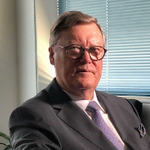
Allan Behm
Head of the International and Security Affairs Program at The Australia Institute at The Australia InstituteAllan Behm is head of the International and Security Affairs Program at The Australia Institute, Canberra.
He specialises in international and security policy analysis and development, political and security risk evaluation, policy analysis and development, and negotiating the policy/politics interface.
During a career spanning nearly thirty years in the Australian Public Service, he was at various times responsible for national security policy, managing Australia’s international strategic interests and negotiating defence and security agreements, and national counter-terrorism arrangements. He was subsequently Chief of Staff to Minister for Climate Change and Industry Greg Combet (2009 to 2013) and senior advisor to the Shadow Minister for Foreign Affairs, Senator Penny Wong (2017-19).
He has a significant publishing record and is a respected commentator in both the electronic and print media. He broadcasts into Asia via CNA in Singapore and Phoenix in Beijing, as well as TVRI World and the BBC World Service. His book No, Minister – an insider’s account of what happens behind the scenes in Parliament House – was published by Melbourne University Publishing in 2015. It remains a “go to” text for those who are interested in leadership, political management, policy development and reform.
In March 2022, he published No Enemies No Friends: Restoring Australia’s Global Relevance (Upswell), a critical examination of what limits Australia as an actor on the international stage. It argues that, if we are to navigate the complexities of the world around us, we must apply the same rigour to a thorough national self-examination. His forthcoming book The Odd Couple (Upswell) offers a similarly challenging take on the Australia-United States partnership.
Allan has tertiary qualifications in classics, philosophy and Asian studies (majoring in Sanskrit, Pali and Prakrit). He attempts to speak Indonesian and French.
Panel 2: Trade and regional frameworks
This panel will analyze South Korea's role in regional trade dynamics and frameworks. Topics include Korea's trade policies, participation in FTAs, and involvement in initiatives like RCEP and CPTPP. Panelists will assess the impact on regional economic integration, supply chain resilience, and Korea's challenges in navigating trade tensions.
Speakers

Dr Bryce Wakefield
Chief Executive Officer at AIIADr Bryce Wakefield is the National Executive Director of the Australian Institute of International Affairs and a visiting fellow at the Australian National University. He has lived, worked and researched in the United States, Japan, Europe and New Zealand. He trained as a political scientist with particular expertise in International Relations and the international affairs of East Asia.
From 2008 to 2012 Bryce was the associate responsible for Northeast Asian programs at the Woodrow Wilson International Center for Scholars in Washington, DC. In this role, he was responsible for conceiving, designing and organising around 60 events in Washington, including policy briefings in the U.S. Congress, on political issues in Australia, Taiwan, North and South Korea and Japan. He co-organised, with the Wilson Center’s partners, three major annual policy conferences in Tokyo. He has also given talks in Japanese, including for parliamentarians at the National Diet.
He was also a university lecturer with tenure in area studies and international relations at Leiden University in the Netherlands. While at Leiden from 2012-2018 he taught numerous classes on the foreign policy and domestic politics of Japan, the politics of East Asia, comparative politics, and the relationship between politics and culture. He designed and implemented a successful specialization on culture and politics for Leiden’s graduate program in International Relations. During his time as a university academic he also delivered training, induction and briefing sessions for Dutch and international diplomats in the Hague and in Japan.
Bryce is regularly quoted in the media. His work and views on political issues in Asia and Australasia have appeared in such outlets as the Australian Financial Review, BusinessWeek, Der Spiegel, Financial Times, SCMP, the Telegraph, de Volkskrant and the Washington Times, as well as on the ABC, ACN, SBS, BBC News, CNBC, CSPAN, 7News Australia, and Sky News Australia and in such Japanese outlets as the Daily Yomiuri, NHK and the Sankei Shimbun. In February 2015, the Tokyo bureau chief of the New York Times named him as one of 10 “influential and reliable intellectuals” outside Washington who could help policymakers better know Japan.
Bryce’s academic publications to date focus on constitutional issues and defence policy, political marketing and national identity in Japan. While at the Wilson Center, he also edited and contributed to several of the centre’s multi-author publications on East Asian politics and foreign policy. He has also written on New Zealand’s foreign policy and has been called to the Australian Senate Foreign Affairs and Defence References Select Committee to give expert testimony.
Bryce lived in Japan from 1998 to 2004 and earned his master’s degree from Osaka University’s School of International Public Policy. He earned his PhD in political studies from the University of Auckland.
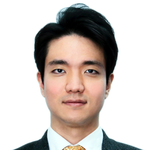
Dr Gibum Kim
Associate Research Fellow at Korea Institute for Defense AnalysesGibum KIM is an associate research fellow at the Korea Institute for Defense Analyses (KIDA). He was formerly a research associate at the Office of the Vice President for Research and the Center for Foreign Policy and National Security of the Asan Institute for Policy Studies (AIPS) in Seoul. Gibum was a member of the Pacific Forum Young Leaders Program from 2014 to 2019. He earned both an MA and BA in Political Science at the College of Political Science and Economics, Korea University, and is pursuing his doctoral degree at his alma mater. His research interests include issues related to nuclear strategy, nonproliferation, the ROK-U.S. alliance, U.S. defense strategy, disruptive technologies, space security, and multilateral security cooperation in the Indo-Pacific region.
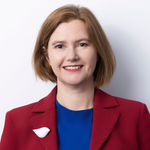
Louise McGrath
Head Industry Development and Policy at Australian Industry GroupLouise has a broad range of experience in international policy. She has particular interest in trade and border regulations, international transport, cross cultural communication, and
digital trade policy.
In her role as the Australian Industry Group’s Head of Industry Development and Policy
she provides strategic leadership and guidance for Ai Group’s policy agenda in
building competitive industries through global integration, infrastructure
development and innovation. She ensures that through policy leadership members have a voice at all levels of government, by representing and promoting their interests on current and emerging issues.
Louise represents Australian Industry in several multilateral forums, such as the B20 Taskforces, Global Business Coalition, and the East Asia Business Council working group on RCEP.
She advocates for the interests of Ai Group members during Free Trade Negotiations
and translates those agreements to support the strategic aims of members.
She is a member of CSIRO’s Responsible Use of Artificial Intelligence at Scale Think Tank and the
Manufacturing Advisory Group, the board of the Product Stewardship Centre of Excellence and the National Reference Group of The Australian Consortium for ‘In-Country’ Indonesian Studies (ACICIS). She also represents Ai Group on the International Trade Remedies Forum and the Modern Slavery Expert Advisory Group.
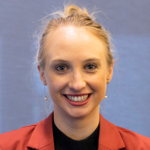
Liz Griffin GAICD
CEO of Australia-Korea Business CouncilLiz has been leading the Australia-Korea Business Council as CEO since December 2015, leveraging her extensive background with Asialink Business and KPMG to spearhead initiatives that enhance bilateral trade and investment between Australia and Korea. Her command of the Korean language is both deep and nuanced, evidenced by her completion of a Diploma of Languages (Korean) at Monash University, alongside her studies at Seoul National University. Liz's academic journey also took her to Yonsei University and Sogang University, further enriching her understanding of Korean culture and business practices.
In 2017, Liz's efforts in promoting economic collaboration between Korea and Australia were formally recognised by the Consul General of the Republic of Korea in Sydney with an appreciation plaque. Her dedication to leadership and excellence in governance was underscored in 2021 upon graduating from the Australian Institute of Company Directors Course.
Liz is passionate about unveiling the dynamic opportunities that exist between Australia and Korea, particularly in sectors critical to the future, such as energy transition, critical minerals, food and agriculture, and financial services. She is dedicated to educating Australian audiences about the strategic importance of our third-largest trading market, driven by a mission to ensure Australian businesses thrive in Korea, and likewise, Korean businesses find success in Australia. This commitment not only showcases her dedication to strengthening bilateral ties but also highlights her role as a pivotal advocate for cross-cultural business success.
Panel 3: International law and the rules-based order
Experts will examine South Korea's adherence to international law and the rules-based order in the Indo-Pacific. Topics include Korea's engagement with legal frameworks, participation in regional institutions, and implications for regional stability and dispute resolution mechanisms.
Speakers
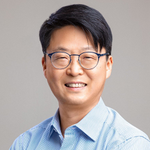
Professor Suh Yong CHUNG
President at Seoul International Law AcademyProfessor Suh-Yong Chung is the Professor of Division of International Studies of Korea University. As an expert of governance and institution building, Professor Chung is also the President of Seoul International Law Academy (SILA), which is a leading think-tank on the issues of foreign policy and global governance as a non-profit organization registered under the Ministry of Foreign Affairs. In the areas of sustainable development and climate change, Professor Chung also directs Center for Climate and Sustainable Development Law and Policy (CSDLAP) under the SILA and also Center for Global Climate and Marine Governance under the Global Research Institute of Korea University.
At the academic level, Professor Chung is also a Visiting Professor at Tel Aviv University of Israel and was a Visiting Professor at SciencesPo, Paris, a consultant for King Abdullah University of Science and Technology (KAUST) in Saudi Arabia and the ODA Project Leader for Hawassa University in Ethiopia. He is also a member of Board of Directors of Korean International Law Society and Vice President of Korean Climate Change Research Society.
Professor Chung also advises various ministries and other agencies by assuming various positions including but not limited to Member of the Policy Advisory Board of Ministry of Reunification, Member of Committee of Carbon Neutrality and Green
Growth of Seoul Metropolitan City Government. Professor Chung was also a Member of Expert Advisory Committee for Korea International Cooperation Agency (KOICA), a Member of the Presidential Committee on Green Growth, and also worked as a Member of the Policy Advisory Board of the Ministry of Foreign Affairs, the Ministry of Oceans and Fisheries, and the Korea Forest Service. Professor Chung has been also deeply involved with various international organizations such as the Global Green Growth Institute as a Member of the Council, the UN Basel Convention as a Vice Chair, UNDP/GEF Yellow Sea Large Marine Ecosystem Project as the Chair of the Regional Governance Working Group
Professor Chung holds degrees in law and international relations from Seoul National University, London School of Economics and Stanford Law School. Professor Chung received the Service Merit Medal for the Marine Environment Projection, Prime Minister’s Award for the Nuclear Security Summit Meeting, and Environment Minister’s Award for the Korea-US FTA.
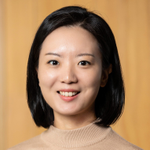
Dr Hyein Ellen Cho
Lecturer at Monash UniversityDr Hyein Ellen Cho is a lecturer in Korean Studies at the School of Languages, Literatures, Cultures and Linguistics and a key researcher at the Monash Gender and Family Violence Prevention Centre, both at Monash University. Hyein’s research work mainly focuses on the intersection of migration and gender-based violence and Australia–Korea relationships in the aspects of gender, migration and diversity. Prior to working in academia, Hyein worked as a project manager (cultural and economic affairs) and an executive assistant to the Consul-General of the Republic of Korea in Melbourne. Hyein is currently leading multiple research projects on gender and family violence that have been funded by different Australian and Korean institutions, such as the Victorian State Government, the Australian National University, the Australian Department of Foreign Affairs and Trades, the Academy of Korean Studies and Korean Women’s Development Institute.

Dr Lauren Richardson
Lecturer at The Australian National UniversityDr Lauren Richardson is a Lecturer in the Department of International Relations. From 2018-2020 she was Director of Studies and Lecturer in the Asia-Pacific College of Diplomacy at the ANU and, from 2020-2022, Director of the ANU Japan Institute. Prior to that Dr Richardson taught Northeast Asian Relations at the University of Edinburgh. Her research focuses on the role of non-state actors in shaping diplomatic interactions in Northeast Asia, particularly Japan-Korea relations. Her publications have focused on the South Korean anti-nuclear movement; the role of Buddhists in Sino-Japanese rapprochement (with G A. Scott); Japan’s evolving defence posture; and the ascension of “comfort women” in South Korean memory of Japanese imperialism (forthcoming). She is currently completing a book manuscript provisionally entitled Reshaping Japan-Korea Relations: Transnational Advocacy Networks and the Politics of Redress.

Emily Mosley
National Operations Manager at Australian Institute of International AffairsEmily Mosley is the National Operations Manager of the Australian Institute of International Affairs. Her work involves organizing and stakeholder engagement, project management, event coordination and external engagement.
In her previous position as the Cyber, Technology & Security Program Coordinator at the Australian Strategic Policy Institute, Emily collaborated closely with researchers and stakeholders to assist in the publication of policy research. Emily also contributed to the ASPI Senate Select Committee on Foreign Interference through Social Media Hearing, where she provided counsel to government officials, offering insights into policy regulations aimed at safeguarding equitable and secure elections from the influence of social media corporations.
Emily is the recipient of the George H.W. Bush Daily Point of Light Award and The Congressional Gold Medal for her activism and work advocating for civic participation. She moved to Australia after receiving the Gilman Scholarship from the U.S. Department of State.
Emily graduated magna cum laude from the George Washington University with a Bachelor of Arts in International Affairs. Her specialized studies encompassed Security Policy & Arabic, and a minor in Political Science.
Seminar: How to write an op-ed
Participate in our Op-Ed workshop, an integral component of our event, where we'll delve into the nuanced process of crafting compelling opinion pieces. This workshop offers an academic exploration of the structural intricacies and persuasive techniques inherent in Op-Ed writing. Additionally, attendees will gain insights into avenues for publication through Australian Outlook, our esteemed platform. Editorial guidelines and strategies for navigating the submission process will be discussed, providing participants with valuable tools for contributing to informed discourse on South Korea's Indo-Pacific Strategy and its implications for Australia. We invite engagement from attendees to utilize the knowledge gleaned from forum discussions to draft insightful Op-Eds, thereby enriching the intellectual dialogue surrounding key regional dynamics.
Speakers

Dr Adam Bartley
Managing Editor of Australian Outlook at Australian Institute of International AffairsDr Adam Bartley is the managing editor for AIIA’s Australian Outlook and weekly columnist for The Week in Australian Foreign Affairs. In addition to this, he is a former Fulbright Scholar, resident fellow at the Elliot School for International Affairs, the George Washington University, and former Vassey non-resident Fellow with the Pacific Forum. Adam also has positions as post-doctoral fellow at the Centre for Cyber Security Research and Innovation RMIT University and as program manager of the AI Trilateral Experts Group.
.
Dr Bartley's research interests sit at the intersection of great power competition, emerging technology, and artificial intelligence. His current research on middle power responses to grey zone activities and Artificial Intelligence in the Indo-Pacific forms the enquiry for his Fulbright and Residency research roles. In this capacity, his forthcoming manuscript with Lynne Rienner will be published in 2024.
Closing remarks
Speakers
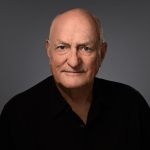
Richard Broinowski AO
Richard Broinowski AO is a retired Australian diplomat. He was educated at the University of Adelaide and the Harvard Kennedy School. He served in Tokyo, Rangoon, Tehran and Manila, before becoming Australian Ambassador to Vietnam (1983-85), then the Republic of Korea (1987-89), and then to Mexico, the Central American Republics and Cuba (1994-98). He took time out from diplomacy to be Manager of Radio Australia in the early 1990s. On retirement, Richard was an adjunct professor in media studies at the University of Canberra, then the University of Sydney. He has published eight books about diplomacy, nuclear matters and Australian history. He became an Officer of the Order of Australia in 2019.
Speakers

Dr Adam Bartley
Managing Editor of Australian Outlook at Australian Institute of International Affairs
More Information

Allan Behm
Head of the International and Security Affairs Program at The Australia Institute at The Australia Institute
More Information

Emily Mosley
National Operations Manager at Australian Institute of International Affairs
More Information

Dr Adam
Bartley
Managing Editor of Australian Outlook at Australian Institute of International Affairs
Dr Adam Bartley is the managing editor for AIIA’s Australian Outlook and weekly columnist for The Week in Australian Foreign Affairs. In addition to this, he is a former Fulbright Scholar, resident fellow at the Elliot School for International Affairs, the George Washington University, and former Vassey non-resident Fellow with the Pacific Forum. Adam also has positions as post-doctoral fellow at the Centre for Cyber Security Research and Innovation RMIT University and as program manager of the AI Trilateral Experts Group.
.
Dr Bartley's research interests sit at the intersection of great power competition, emerging technology, and artificial intelligence. His current research on middle power responses to grey zone activities and Artificial Intelligence in the Indo-Pacific forms the enquiry for his Fulbright and Residency research roles. In this capacity, his forthcoming manuscript with Lynne Rienner will be published in 2024.

Allan Behm
Head of the International and Security Affairs Program at The Australia Institute at The Australia Institute
Allan Behm is head of the International and Security Affairs Program at The Australia Institute, Canberra.
He specialises in international and security policy analysis and development, political and security risk evaluation, policy analysis and development, and negotiating the policy/politics interface.
During a career spanning nearly thirty years in the Australian Public Service, he was at various times responsible for national security policy, managing Australia’s international strategic interests and negotiating defence and security agreements, and national counter-terrorism arrangements. He was subsequently Chief of Staff to Minister for Climate Change and Industry Greg Combet (2009 to 2013) and senior advisor to the Shadow Minister for Foreign Affairs, Senator Penny Wong (2017-19).
He has a significant publishing record and is a respected commentator in both the electronic and print media. He broadcasts into Asia via CNA in Singapore and Phoenix in Beijing, as well as TVRI World and the BBC World Service. His book No, Minister – an insider’s account of what happens behind the scenes in Parliament House – was published by Melbourne University Publishing in 2015. It remains a “go to” text for those who are interested in leadership, political management, policy development and reform.
In March 2022, he published No Enemies No Friends: Restoring Australia’s Global Relevance (Upswell), a critical examination of what limits Australia as an actor on the international stage. It argues that, if we are to navigate the complexities of the world around us, we must apply the same rigour to a thorough national self-examination. His forthcoming book The Odd Couple (Upswell) offers a similarly challenging take on the Australia-United States partnership.
Allan has tertiary qualifications in classics, philosophy and Asian studies (majoring in Sanskrit, Pali and Prakrit). He attempts to speak Indonesian and French.

Richard
Broinowski AO
Richard Broinowski AO is a retired Australian diplomat. He was educated at the University of Adelaide and the Harvard Kennedy School. He served in Tokyo, Rangoon, Tehran and Manila, before becoming Australian Ambassador to Vietnam (1983-85), then the Republic of Korea (1987-89), and then to Mexico, the Central American Republics and Cuba (1994-98). He took time out from diplomacy to be Manager of Radio Australia in the early 1990s. On retirement, Richard was an adjunct professor in media studies at the University of Canberra, then the University of Sydney. He has published eight books about diplomacy, nuclear matters and Australian history. He became an Officer of the Order of Australia in 2019.

Professor Suh Yong
CHUNG
President at Seoul International Law Academy
Professor Suh-Yong Chung is the Professor of Division of International Studies of Korea University. As an expert of governance and institution building, Professor Chung is also the President of Seoul International Law Academy (SILA), which is a leading think-tank on the issues of foreign policy and global governance as a non-profit organization registered under the Ministry of Foreign Affairs. In the areas of sustainable development and climate change, Professor Chung also directs Center for Climate and Sustainable Development Law and Policy (CSDLAP) under the SILA and also Center for Global Climate and Marine Governance under the Global Research Institute of Korea University.
At the academic level, Professor Chung is also a Visiting Professor at Tel Aviv University of Israel and was a Visiting Professor at SciencesPo, Paris, a consultant for King Abdullah University of Science and Technology (KAUST) in Saudi Arabia and the ODA Project Leader for Hawassa University in Ethiopia. He is also a member of Board of Directors of Korean International Law Society and Vice President of Korean Climate Change Research Society.
Professor Chung also advises various ministries and other agencies by assuming various positions including but not limited to Member of the Policy Advisory Board of Ministry of Reunification, Member of Committee of Carbon Neutrality and Green
Growth of Seoul Metropolitan City Government. Professor Chung was also a Member of Expert Advisory Committee for Korea International Cooperation Agency (KOICA), a Member of the Presidential Committee on Green Growth, and also worked as a Member of the Policy Advisory Board of the Ministry of Foreign Affairs, the Ministry of Oceans and Fisheries, and the Korea Forest Service. Professor Chung has been also deeply involved with various international organizations such as the Global Green Growth Institute as a Member of the Council, the UN Basel Convention as a Vice Chair, UNDP/GEF Yellow Sea Large Marine Ecosystem Project as the Chair of the Regional Governance Working Group
Professor Chung holds degrees in law and international relations from Seoul National University, London School of Economics and Stanford Law School. Professor Chung received the Service Merit Medal for the Marine Environment Projection, Prime Minister’s Award for the Nuclear Security Summit Meeting, and Environment Minister’s Award for the Korea-US FTA.

Dr Hyein Ellen
Cho
Lecturer at Monash University
Dr Hyein Ellen Cho is a lecturer in Korean Studies at the School of Languages, Literatures, Cultures and Linguistics and a key researcher at the Monash Gender and Family Violence Prevention Centre, both at Monash University. Hyein’s research work mainly focuses on the intersection of migration and gender-based violence and Australia–Korea relationships in the aspects of gender, migration and diversity. Prior to working in academia, Hyein worked as a project manager (cultural and economic affairs) and an executive assistant to the Consul-General of the Republic of Korea in Melbourne. Hyein is currently leading multiple research projects on gender and family violence that have been funded by different Australian and Korean institutions, such as the Victorian State Government, the Australian National University, the Australian Department of Foreign Affairs and Trades, the Academy of Korean Studies and Korean Women’s Development Institute.

Liz
Griffin GAICD
CEO of Australia-Korea Business Council
Liz has been leading the Australia-Korea Business Council as CEO since December 2015, leveraging her extensive background with Asialink Business and KPMG to spearhead initiatives that enhance bilateral trade and investment between Australia and Korea. Her command of the Korean language is both deep and nuanced, evidenced by her completion of a Diploma of Languages (Korean) at Monash University, alongside her studies at Seoul National University. Liz's academic journey also took her to Yonsei University and Sogang University, further enriching her understanding of Korean culture and business practices.
In 2017, Liz's efforts in promoting economic collaboration between Korea and Australia were formally recognised by the Consul General of the Republic of Korea in Sydney with an appreciation plaque. Her dedication to leadership and excellence in governance was underscored in 2021 upon graduating from the Australian Institute of Company Directors Course.
Liz is passionate about unveiling the dynamic opportunities that exist between Australia and Korea, particularly in sectors critical to the future, such as energy transition, critical minerals, food and agriculture, and financial services. She is dedicated to educating Australian audiences about the strategic importance of our third-largest trading market, driven by a mission to ensure Australian businesses thrive in Korea, and likewise, Korean businesses find success in Australia. This commitment not only showcases her dedication to strengthening bilateral ties but also highlights her role as a pivotal advocate for cross-cultural business success.

Dr Duyeon
Kim
Adjunct Senior Fellow at Center for a New American Security
Duyeon Kim, PhD, is an adjunct senior fellow with the Indo-Pacific Security Program at
CNAS based in Seoul. Her expertise includes the two Koreas, nuclear
nonproliferation, arms control, East Asian relations and geopolitics, U.S.
nuclear policy, and security. She is a columnist for the Bulletin of the Atomic
Scientists and a Visiting Professor at the Yonsei University Graduate School of
International Studies teaching Regional Security Regimes in Europe and Asia as
well as Deterrence and Negotiations with North Korea: Theory and Practice.
Dr. Kim’s writings have appeared in leading publications, including Foreign
Affairs and Foreign Policy. She is a frequent media commentator appearing on
major networks including CNN, BBC, CBS, and NBC, and she is widely quoted in
leading print media including The Washington Post, The New York Times, The
Guardian, The Associated Press, Bloomberg, Donga Ilbo, Yonhap News, and The
Japan Times. Dr. Kim serves on the board of directors of the bilateral
Korea-America Association and is a member of the Council for Security
Cooperation in the Asia Pacific U.S. Committee, the International Nuclear
Security Forum, the U.S. National Committee on North Korea, and the Korean
Peninsula Future Forum in Seoul. Dr. Kim holds a Ph.D. in international
relations from Korea University; an MS in foreign service from the Georgetown
University School of Foreign Service; and a BA in English/literature from
Syracuse University. She has native proficiency in Korean and English.

Dr Gibum Kim
Associate Research Fellow at Korea Institute for Defense Analyses
Gibum KIM is an associate research fellow at the Korea Institute for Defense Analyses (KIDA). He was formerly a research associate at the Office of the Vice President for Research and the Center for Foreign Policy and National Security of the Asan Institute for Policy Studies (AIPS) in Seoul. Gibum was a member of the Pacific Forum Young Leaders Program from 2014 to 2019. He earned both an MA and BA in Political Science at the College of Political Science and Economics, Korea University, and is pursuing his doctoral degree at his alma mater. His research interests include issues related to nuclear strategy, nonproliferation, the ROK-U.S. alliance, U.S. defense strategy, disruptive technologies, space security, and multilateral security cooperation in the Indo-Pacific region.

Dr Troy
Lee-Brown
Research Fellow at UWA Defence and Security Institute
Troy Lee-Brown is a researcher in regional security, maritime security and international relations with a focus on defence and security issues in the Indian Ocean Region and broader Indo-Pacific. He is currently a Research Fellow at the Defence and Security Institute at the University of Western Australia. Troy is the Editor of the DSI Black Swan Strategy Paper and also the Project Manager for the Blue Security Program a DFAT funded project which focuses on issues of maritime security in the Indo-Pacific. His research interests include the Indian Ocean, Indo-Pacific, maritime security, South Asia, Southeast Asia, East Asia, regionalism, defence, littoral strategies and climate change.

Louise
McGrath
Head Industry Development and Policy at Australian Industry Group
Louise has a broad range of experience in international policy. She has particular interest in trade and border regulations, international transport, cross cultural communication, and
digital trade policy.
In her role as the Australian Industry Group’s Head of Industry Development and Policy
she provides strategic leadership and guidance for Ai Group’s policy agenda in
building competitive industries through global integration, infrastructure
development and innovation. She ensures that through policy leadership members have a voice at all levels of government, by representing and promoting their interests on current and emerging issues.
Louise represents Australian Industry in several multilateral forums, such as the B20 Taskforces, Global Business Coalition, and the East Asia Business Council working group on RCEP.
She advocates for the interests of Ai Group members during Free Trade Negotiations
and translates those agreements to support the strategic aims of members.
She is a member of CSIRO’s Responsible Use of Artificial Intelligence at Scale Think Tank and the
Manufacturing Advisory Group, the board of the Product Stewardship Centre of Excellence and the National Reference Group of The Australian Consortium for ‘In-Country’ Indonesian Studies (ACICIS). She also represents Ai Group on the International Trade Remedies Forum and the Modern Slavery Expert Advisory Group.

Emily Mosley
National Operations Manager at Australian Institute of International Affairs
Emily Mosley is the National Operations Manager of the Australian Institute of International Affairs. Her work involves organizing and stakeholder engagement, project management, event coordination and external engagement.
In her previous position as the Cyber, Technology & Security Program Coordinator at the Australian Strategic Policy Institute, Emily collaborated closely with researchers and stakeholders to assist in the publication of policy research. Emily also contributed to the ASPI Senate Select Committee on Foreign Interference through Social Media Hearing, where she provided counsel to government officials, offering insights into policy regulations aimed at safeguarding equitable and secure elections from the influence of social media corporations.
Emily is the recipient of the George H.W. Bush Daily Point of Light Award and The Congressional Gold Medal for her activism and work advocating for civic participation. She moved to Australia after receiving the Gilman Scholarship from the U.S. Department of State.
Emily graduated magna cum laude from the George Washington University with a Bachelor of Arts in International Affairs. Her specialized studies encompassed Security Policy & Arabic, and a minor in Political Science.

Dr Lauren
Richardson
Lecturer at The Australian National University
Dr Lauren Richardson is a Lecturer in the Department of International Relations. From 2018-2020 she was Director of Studies and Lecturer in the Asia-Pacific College of Diplomacy at the ANU and, from 2020-2022, Director of the ANU Japan Institute. Prior to that Dr Richardson taught Northeast Asian Relations at the University of Edinburgh. Her research focuses on the role of non-state actors in shaping diplomatic interactions in Northeast Asia, particularly Japan-Korea relations. Her publications have focused on the South Korean anti-nuclear movement; the role of Buddhists in Sino-Japanese rapprochement (with G A. Scott); Japan’s evolving defence posture; and the ascension of “comfort women” in South Korean memory of Japanese imperialism (forthcoming). She is currently completing a book manuscript provisionally entitled Reshaping Japan-Korea Relations: Transnational Advocacy Networks and the Politics of Redress.

Dr Bryce
Wakefield
Chief Executive Officer at AIIA
https://www.internationalaffairs.org.au/dr-bryce-wakefield/Dr Bryce Wakefield is the National Executive Director of the Australian Institute of International Affairs and a visiting fellow at the Australian National University. He has lived, worked and researched in the United States, Japan, Europe and New Zealand. He trained as a political scientist with particular expertise in International Relations and the international affairs of East Asia.
From 2008 to 2012 Bryce was the associate responsible for Northeast Asian programs at the Woodrow Wilson International Center for Scholars in Washington, DC. In this role, he was responsible for conceiving, designing and organising around 60 events in Washington, including policy briefings in the U.S. Congress, on political issues in Australia, Taiwan, North and South Korea and Japan. He co-organised, with the Wilson Center’s partners, three major annual policy conferences in Tokyo. He has also given talks in Japanese, including for parliamentarians at the National Diet.
He was also a university lecturer with tenure in area studies and international relations at Leiden University in the Netherlands. While at Leiden from 2012-2018 he taught numerous classes on the foreign policy and domestic politics of Japan, the politics of East Asia, comparative politics, and the relationship between politics and culture. He designed and implemented a successful specialization on culture and politics for Leiden’s graduate program in International Relations. During his time as a university academic he also delivered training, induction and briefing sessions for Dutch and international diplomats in the Hague and in Japan.
Bryce is regularly quoted in the media. His work and views on political issues in Asia and Australasia have appeared in such outlets as the Australian Financial Review, BusinessWeek, Der Spiegel, Financial Times, SCMP, the Telegraph, de Volkskrant and the Washington Times, as well as on the ABC, ACN, SBS, BBC News, CNBC, CSPAN, 7News Australia, and Sky News Australia and in such Japanese outlets as the Daily Yomiuri, NHK and the Sankei Shimbun. In February 2015, the Tokyo bureau chief of the New York Times named him as one of 10 “influential and reliable intellectuals” outside Washington who could help policymakers better know Japan.
Bryce’s academic publications to date focus on constitutional issues and defence policy, political marketing and national identity in Japan. While at the Wilson Center, he also edited and contributed to several of the centre’s multi-author publications on East Asian politics and foreign policy. He has also written on New Zealand’s foreign policy and has been called to the Australian Senate Foreign Affairs and Defence References Select Committee to give expert testimony.
Bryce lived in Japan from 1998 to 2004 and earned his master’s degree from Osaka University’s School of International Public Policy. He earned his PhD in political studies from the University of Auckland.
Sponsors and Partners
This is a past event
Australian Institute of International Affairs might have other events you're interested in.
View more events
